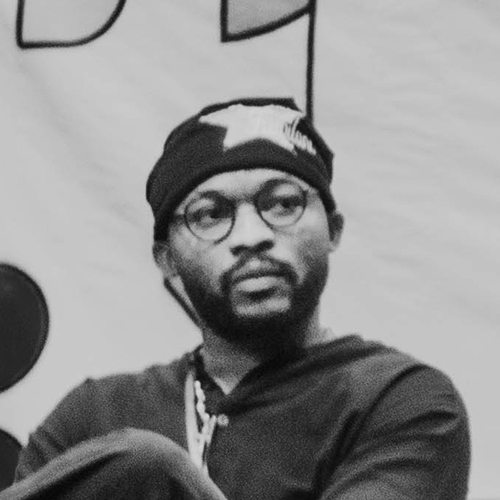i was at the gym when the line came flooding back into my mind. one of those rare sentences that i find super interesting, not because it’s poetic, but because it demands something from you:
“and to this myth, this greatness, which we want to translate into a total reality, we subordinate everything else.”
— benito mussolini, the doctrine of fascism
what a terrifyingly beautiful sentence.
in one breath, it captures what entire civilizations have used to claw themselves out of obscurity: a myth — not a lie, but a belief strong enough to eclipse personal ambition. a myth of national greatness, so powerful it demands sacrifice, organization, and continuity.
that one line explains how poor countries became empires.
how tribes became nations.
how dust became destiny.
and it explains, perhaps more than anything else, why africa remains an endless rehearsal.
before we go on, a note for the unfamiliar:
benito mussolini was the founder of italian fascism and the country’s prime minister from 1922 to 1943. a dictator, a propagandist, and one of the architects of twentieth-century totalitarianism. he aligned with hitler, wrecked nations, and met a brutal end. but beneath the horror was an obsession with the state — and in the doctrine of fascism, he articulated something many have ignored: an ideology anchored in myth. a belief that the individual must dissolve into the destiny of the nation.
the following are my findings off reading this manifesto
i. myth as national technology
mussolini knew something we don’t — that every truly great civilization runs not on gold, or oil, or population, but on myth. on the divine madness of collective belief. the kind that turns peasants into patriots. the kind that builds institutions not for profit, but for posterity.
plato called it a noble lie — or γενναῖον ψεῦδος (gennaion pseudos). a necessary fiction that binds people to the state, to virtue, to purpose. not because it is true, but because it holds the structure together.
“our myth is the greatness of the nation,” he wrote. and then, almost as if he were whispering to gods:
“we subordinate everything else.”
not because he was moral. not because he was right.
but because he understood the architecture of belief — and how to build a machine that bends the will of millions.
myth is the only currency that outlives recessions, invasions, even failure.
it makes men build pyramids without pay.
it keeps them loyal to an invisible ideal.
it creates cultures where shame has weight, where future generations have a name before they are born.
myth is a technology. and it works.
ask the romans. ask the jews. ask the americans.
ii. africa’s allergic reaction to vision
look around africa.
what do you see?
a continent allergic to long-term anything.
leaders who rule by impulse, not blueprint. ask the average african what the nation should become, and watch the confusion in their eyes.
“i just want to be comfortable,” they’ll say.
we are not a people guided by vision.
we are a people shaped by exhaustion.
we do not subordinate anything, because we do not elevate anything.
iii. ideology is a full-time job
belief takes effort.
conviction is exhausting.
ideology is hard work.
and so, rather than build one, we borrow.
we borrow democracy from the west — without the institutional memory that sustains it.
we borrow capitalism — without the protections.
we borrow religion — and replace introspection with volume.
what we don’t do is think.
we do not sit with ourselves, as a people, and ask:
who are we?
what is our myth?
what are we willing to suffer for?
mussolini had fascism.
trump had nationalism.
china has state capitalism.
israel has survival.
japan has honor.
africa has… vibes.
iv. what they had — and what we mock
when mussolini spoke of the greatness of the nation, he meant something spiritual.
metaphysical.
something beyond roads and gdps.
it was a sacred energy. a myth meant to survive defeat. even death.
and while his regime was eventually crushed, the method was eternal.
the blueprint was sound.
africa, meanwhile, laughs at vision.
mocks depth.
throws out anyone too ideological, too serious, too inconvenient.
we turn thinkers into outcasts.
we drag intellectuals for being “too extra.”
we villainize ambition.
we elect clowns.
and then we cry.
v. myth, memory, and the coming dark
the worst part?
we are raising children with no myth of their own.
they do not believe in the country.
they do not believe in sacrifice.
they do not believe in history — because no one gave them one worth remembering.
and so they become global citizens —
fluent in memes,
educated in algorithm,
flawless in accent,
but empty in root.
they belong to nowhere.
they fight for nothing.
they are the final product of an ideology-less continent.
and when they inherit the ruins we are building, they will curse us.
not for failing — but for not even trying to believe.
epilogue: why this matters
mussolini was a tyrant.
but in his madness, there was method.
in his myth, there was machinery.
in his words, there was weight.
“to this myth, this greatness… we subordinate everything else.”
imagine if we said that here.
imagine if africa dared to believe in its own myth.
imagine if we stopped chasing validation, and started shaping destiny.
but we won’t.
because that would mean reading.
and thinking.
and sacrificing.
and africans don’t do that.
